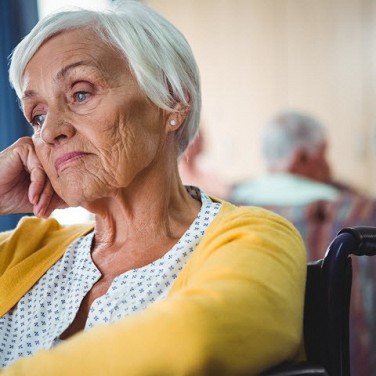It's essential for seniors and their caregivers to be well-informed about the potential risks of heat-related illnesses. While summer can be a delightful season, it also poses unique challenges for older adults, who are more susceptible to the adverse effects of extreme heat.
Understanding Heat-Related Illnesses

Heat exhaustion:
- Signs and symptoms: Heat exhaustion can manifest as heavy sweating, weakness, fatigue, nausea, headache, dizziness, and an elevated heart rate.
- When to seek medical attention: If left untreated, heat exhaustion can progress to heatstroke. Seniors and caregivers should take it seriously and seek medical help promptly if symptoms are severe or worsen.
Heatstroke (Sunstroke):
Find YOUR ideal care home NOW!
- Signs and symptoms: Heatstroke is a medical emergency. It can cause high body temperature (often above 104°F or 40°C), confusion, altered mental state, rapid breathing, flushed skin, rapid pulse, and even loss of consciousness.
- When to seek immediate medical attention: Heatstroke is life-threatening. If you suspect someone is experiencing heatstroke, call 911 or your local emergency number immediately. While waiting for help, attempt to cool the person down by moving them to a shaded area, removing excess clothing, and applying cool, damp clothes.
Preventing heat-related illnesses:
-
Stay hydrated: Seniors should drink plenty of fluids, even if they don't feel thirsty. Water and electrolyte-rich beverages are essential for preventing dehydration.
-
Avoid peak heat hours: Encourage seniors to limit outdoor activities during the hottest parts of the day (usually between 10 a.m. and 4 p.m.).
-
Wear appropriate clothing: Loose-fitting, lightweight, and light-colored clothing can help seniors stay cool and protect them from the sun.
-
Use fans and air conditioning: Seniors should stay in air-conditioned spaces whenever possible. Fans can provide additional cooling indoors.
-
Take cool showers or baths: A cool shower or bath can help lower body temperature if someone feels overheated.
-
Monitor medications: Some medications can increase sensitivity to heat. Seniors should consult their healthcare provider if they have concerns about their medications.
-
Stay informed: Keep an eye on weather forecasts, heat advisories, and warnings. These can help seniors plan their activities accordingly.
By being aware of the signs and symptoms of heat-related illnesses and taking proactive measures to stay cool and hydrated, seniors can enjoy the summer season safely.
Heat-Related Illnesses and Symptoms Table
| Illness | Symptoms |
|---|---|
| Heat Stroke | High body temperature, confusion, headache, nausea, rapid pulse |
| Heat Exhaustion | Heavy sweating, weakness, dizziness, fainting, rapid heartbeat |
| Heat Cramps | Muscle spasms, heavy sweating, mild dehydration |
Caregivers play a crucial role in monitoring their loved ones and seeking immediate medical attention in case of severe symptoms. With knowledge and preparedness, we can ensure that the summer remains a time of enjoyment and relaxation for our elderly population.
Senior Home Plus is here to help you choose a care home or facility best suited to your needs. Do not hesitate to contact us on the following number: 0230 608 0055 or fill out this form.
FAQs:
What are the most common heat-related illnesses?
Heat-related illnesses include heat stroke, heat exhaustion, heat cramps, and heat rash. Each varies in severity and symptoms but can lead to serious health complications if not addressed.
How can I tell if someone is suffering from heat stroke?
Signs of heat stroke include a body temperature of 40°C (104°F) or higher, confusion, nausea, rapid pulse, headache, and lack of sweating despite the heat. This condition requires immediate medical attention.
Who is most at risk for heat-related illnesses?
Elderly people, young children, individuals with chronic illnesses, and those taking certain medications are more vulnerable to heat-related illnesses.
What should I do if someone is experiencing heat exhaustion?
Move the person to a cool, shaded area, provide water for hydration, and encourage them to rest. If symptoms persist or worsen, seek medical assistance immediately.
Can heat-related illnesses be prevented?
Yes, by staying hydrated, avoiding outdoor activities during peak heat hours, wearing light clothing, and using cooling devices such as fans or air conditioning.
Is dehydration a cause of heat-related illnesses?
Dehydration is a significant contributing factor to heat-related illnesses as it impairs the body's ability to regulate temperature.
Can I get heat stroke indoors?
Yes, if indoor temperatures are excessively high and hydration or ventilation is inadequate, heat stroke can occur.
How much water should I drink during extreme heat?
While individual needs vary, most adults should aim to drink at least 8-10 glasses of water daily and increase intake if engaging in physical activity or sweating excessively.
Are there specific foods that help prevent heat-related illnesses?
Foods high in water content, like watermelon, cucumbers, and oranges, can help maintain hydration levels and reduce the risk of heat-related conditions.
What should I wear to reduce the risk of heat-related illnesses?
Wear light-colored, loose-fitting, and breathable fabrics like cotton or linen to stay cool and allow better air circulation.
Need help finding a care home?
Senior Home Plus offers free personalized guidance to help you find a care facility that suits your health needs, budget, and preferred location in the UK.
Call us at 0203 608 0055 to get expert assistance today.
Do you need a care home for yourself or your loved one?
Search for Care Homes by Region in the UK
| East Midlands | Eastern | Isle of Man |
| London | North East | North West |
| Northern Ireland | Scotland | South East |
| South West | Wales | West Midlands |
| Yorkshire and the Humber |

